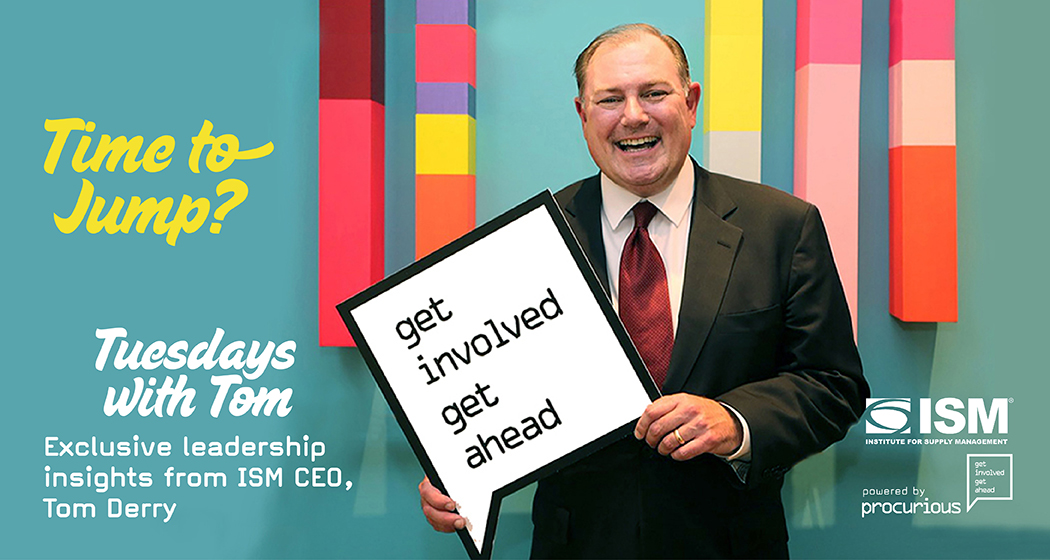As You Sip Your Delicious Morning Cup Of Suppliers’ Blood…
Is supply management really full of psychopaths? Why do members of Gen Next want to change jobs so frequently? How can managers retain top procurement talent? We put all these questions and more to ISM CEO Tom Derry.

Psychopaths in the profession?
A few years back, a researcher approached ISM CEO Tom Derry and wanted to survey the ISM membership to build a psychological profile of people who go into supply management. A few months later, Tom opened the newspaper and was appalled to find a headline stating “The majority of procurement professionals are psychopaths!”
“That was then,” says Tom. “In those days, there was an expectation that your job was to sit across the negotiating table from your supplier, have zero empathy with that person, demand cost reductions, and extract the pound of flesh. Sure, I can see how those could be seen as psychopathic tendencies. But you’re never going to succeed in supply management [these days] with that kind of approach. The emphasis on supplier relationship management in particular is so critical. That [old] profile is never going to be successful in the profession today.”
The days of the blood-sucking, empathy lacking hardball negotiator are over, but we still have work to do to reinvent the profession’s image – and that’s where fresh, new talent is going to help.
Time to Jump?
Last year, Procurious’ “Gen Next” survey revealed that just under 50% of supply management professionals intend to change roles within the next two years, and 34% intend to leave their current organisation entirely within the next 2 – 5 years. We asked Tom if it’s unrealistic these days for employers to expect their employees to stay anywhere for more than five years.
“Not at all. I think it’s realistic for them to expect longer tenure, but there are a few key things that matter”, says Tom. These include:
- Training on the job – people really value skill acquisition.
- Challenging and new assignments giving people a chance to grow.
- Giving them exposure to other functions in the business via a rotation program.
Retaining Top Talent
But how can a head of supply management retain their top talent? In Tom’s view, we need to be realistic. “Don’t be too defensive about talent”, he says. “It’s a wonderful thing for a leader to be known as a discoverer and developer of great talent, which inevitably means that some people are going to move on, but that’s attractive. If I’m looking for a place to work and I know someone who has a reputation for identifying and developing people who want great new opportunities, I’m going to want to work there. Develop a reputation that will work to your advantage.”
Tom also stresses the importance of making people feel valued. “You can’t overvalue how important it is for a manager to just walk around and talk to people. Take an active interest in what they’re doing. They’ll be happy to know that you know what they’re working on, and that you find it exciting and interesting, and that means a hell of a lot to anybody when a leader comes around and shows interest. It drives results for the company.”
“As a leader, you have to be aware of the profile and external reputation of your team, within the company and externally in the industry. You need to be forward-looking as a leader in creating an environment that’s always compelling and interesting. The best CPOs that I know are focused on where the business is headed in the next 3-5 years, and what kind of team they need to build to optimise the business that we’re going to become. If you’re looking backwards and focused on efficiency, you’re missing the point. You need to be thinking about where you need to take the procurement team to deliver on the future vision – and that is what will make you an attractive leader to any talent.”

In our 10-part “Tuesdays With Tom” podcast series, Tom Derry discusses a broad range of critically important topics that every supply management professional should be across.
Listen to the full podcast here.